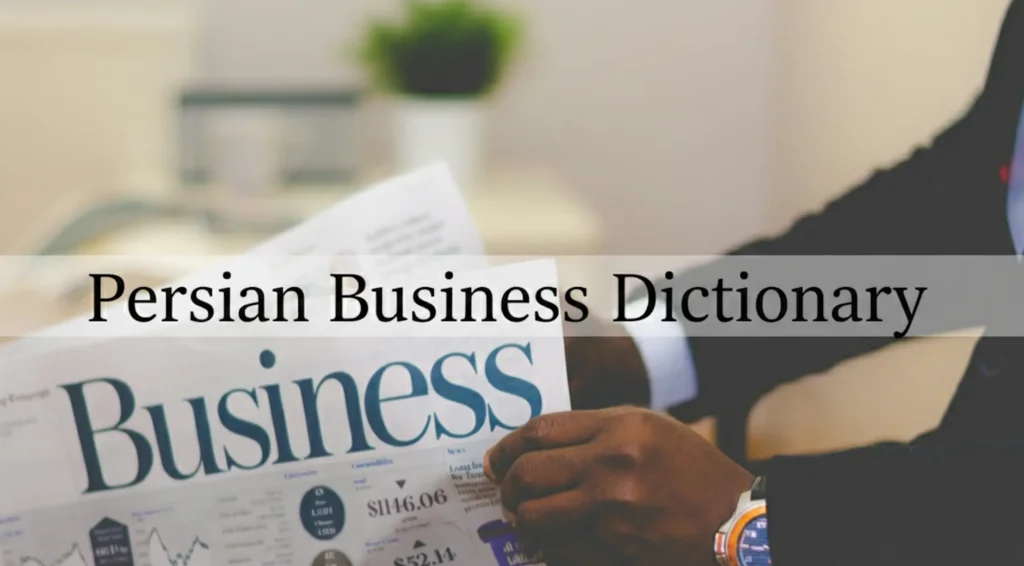Farsi for Business: Key Expressions to Know
In today’s interconnected global marketplace, effective communication across languages is no longer optional—it is a strategic advantage. This is especially true when working with Persian-speaking clients, partners, or investors. Farsi, the official language of Iran and widely spoken across parts of Central Asia and the Persian diaspora, plays a critical role in professional and commercial interactions.
Whether you are negotiating contracts, attending meetings, managing partnerships, or networking internationally, understanding key Farsi expressions can significantly improve clarity, trust, and long-term cooperation. Even a basic command of business-related phrases can set you apart and demonstrate professionalism and cultural awareness.
Why Farsi Matters in Business Communication
Language is more than a communication tool—it is a bridge to culture, values, and relationships. In Persian business culture, trust and respect are foundational. Making the effort to use Farsi expressions, even at a basic level, signals seriousness and commitment.
Using Farsi in professional settings can help reduce misunderstandings, strengthen rapport, and foster smoother negotiations. It also shows that you value your counterpart’s cultural background, which is often appreciated and remembered in long-term business relationships.
Cultural Respect Through Language
In Persian culture, politeness and formal language play an important role in professional environments. Addressing people respectfully, expressing gratitude, and acknowledging others’ time are essential components of business etiquette. Learning Farsi expressions helps you navigate these expectations with confidence and sensitivity.
Essential Farsi Business Expressions
1. Can we meet next week?
Aayaa mitavaanim hafte-ye aayande yekdigar raa molaaqaat konim?
آیا میتوانیم هفتهی آینده یکدیگر را ملاقات کنیم؟
This phrase is useful for proposing meetings professionally and clearly, showing respect for planning and scheduling.
2. Thank you for taking the time to meet us
Az inke baraaye molaaqaat baa maa vaqt gozaashtid sepaasgozaar hastim.
از اینکه برای ملاقات با ما وقت گذاشتید سپاسگزار هستیم.
Expressing gratitude is highly valued in Persian business culture and strengthens professional rapport.
3. Can we exchange business cards?
Aayaa mitavaanim kaart-e visit tabaadol konim?
آیا میتوانیم کارت ویزیت تبادل کنیم؟
Exchanging business cards is common and often marks the start of a professional relationship.
4. I believe we can find a compromise
Man e‘teqaad daaram mitavaanim be saazesh beresim.
من اعتقاد دارم که میتوانیم به سازش برسیم.
This phrase signals flexibility and a collaborative mindset during negotiations.
5. I agree / I disagree respectfully
Man kaamelan movaafeqam.
من کاملاً موافقم.
Mote’assefaane naachaaram ke mokhaalefat konam.
متأسفانه ناچارم که مخالفت کنم.
These expressions allow you to agree or disagree politely while maintaining professionalism.
Business Etiquette Tips in Persian Culture
Understanding cultural norms is just as important as language. In Persian business settings, conversations may begin with small talk before moving to formal topics. Hospitality, patience, and relationship-building often take priority over speed.
Maintaining eye contact, listening attentively, and avoiding overly aggressive negotiation tactics are all considered signs of professionalism. Language, tone, and timing matter—and using appropriate Farsi expressions helps you align with these expectations.
Learn Farsi for Business with Danaa School
If you want to go beyond memorizing phrases and truly communicate confidently in professional settings, [Danaa School](chatgpt://generic-entity?number=0) offers specialized Farsi courses tailored for business use.
Through structured lessons, real-life scenarios, and cultural insights, learners develop practical speaking skills for meetings, negotiations, and networking. Whether you are an entrepreneur, executive, or international professional, these courses help you gain a competitive edge.
Learn Farsi for Business with Danaa School and start communicating with confidence. Enroll today and take your professional communication to the next level.
FAQs
How can learning Farsi help my business?
It builds trust, improves communication, and demonstrates cultural respect when working with Persian-speaking partners.
Is Farsi difficult to learn for business purposes?
Basic business Farsi is very achievable, especially with structured courses focused on practical communication.
Are these phrases formal?
Yes, all expressions provided are suitable for professional and formal business environments.









